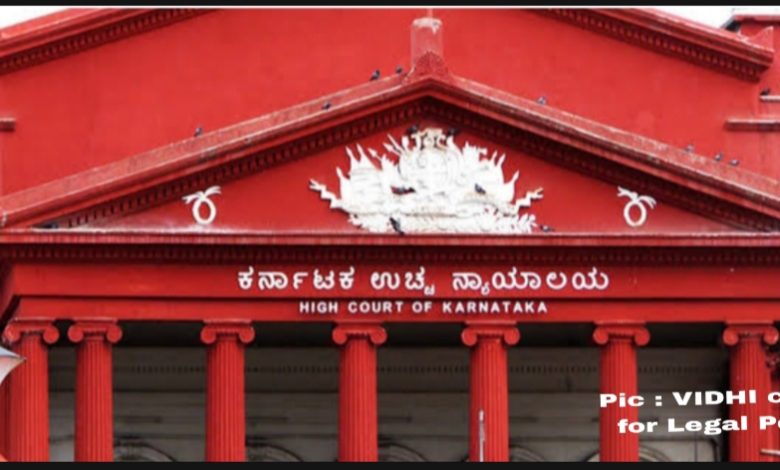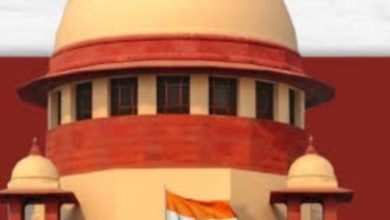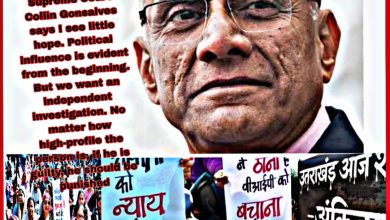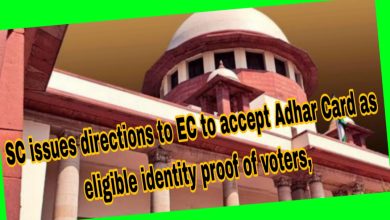Balancing Rights: Can Courts Exempt the Accused from personal appearance in POCSO cases?

By – SHUBHAM ARYA (Student at Rajiv Gandhi National University of Law, Punjab)
Story so Far,
On Thursday, Karnataka High Court in the case BS Yediyurappa v. State of Karnataka rejected the plea of former Karnataka Chief minister B.S Yediyurappa in a case involving of allege sexual assault of a 17-year-old girl in 2024 upholding a trial court order that took fresh cognisance. While disposing the petition filed by Yediyurappa and other accused Justice MI Arun refrain from either interfering or quashing the case with the cognisance by the trial court. The Bench of Justice Arun observe “Taking into consideration the age of Yediyurppa who is 81 years old, I am of the opinion that the presence of him should not be insisted by the trail court, unless necessary.
Does the law permit so?
One of the most important and essential principle of a criminal law is that the trial of an offence should take place in the presence of the accused. This principle has been embodied in Section 308 of Bharatiya Nagarik Suraksha Sanhita (BNSS) 2023, that provides a general rule, that all evidence taken in the course of trial shall be taken in presence of accused. Such rule is mainly for the protection of the interest of the accused under the ambit of natural justice, BNSS has provision that allows court discretion in certain circumstances, to exempt an accused from personal appearance. However, this exemption is not available to an accused as a matter of right but subject to the discretion of court based the facts and circumstance of the case. A personal appearance of an accused after the summon by the court can be dispense under the provision of Section 228 of BNSS which authorises that a judicial magistrate may do so if he or she sees reason to do so and can permit an accused to be represented by his advocate. However, under section 355 of BNSS states provision for inquiries and trial being held in absence of accused in certain cases, collective reading of both the section provides with a clearance that the court is impowered to dispense with personal attendance of the accused in all stages. While section 228 covers personal appearance right from the stage of commencement of proceedings and section 355 covers stages after the commencement of inquiry or trial.
Factors considered while permitting
The power to exempt performed by the court to exempt a person accused in a case from personal appearance is exercised cautiously considering condition of the accused, facts and circumstances of the case and the necessity of the accused to be present. General rule in criminal cases is that personal appearance is the rule if the act is of serious nature, involving violation of acceptance standards of community. On the other hand, if the offence is punishable with only fine only, and involves no violation of acceptance standards of community, exemption of personal appearance is the rule. Court while dealing in such matter applies the principle generally where personal appearance of the accused would cause serious difficulty and inconvenience. The reason for granting exemption is two-fold firstly, the proceedings may take be taken expeditiously and secondly, the hearing be not adjourned only for the absence of accused. The Supreme Court, in Sharif Ahmed and others vs State of Uttar Pradesh (2024), reiterated that the power to grant exemption from personal appearance should be exercised judiciously and without unnecessary constraints.
Application in POCSO cases
The prevalence of sexual offences against children in India represents a grave and urgent social challenge, one that demands both legal and institutional sensitivity. In recognition of this crisis, the Protection of Children from Sexual Offences Act, 2012 (POCSO) was enacted to create a comprehensive and child-centric framework for addressing sexual offences Exemption from the personal appearance of the accused in POCSO (Protection of Children from Sexual Offences) cases in India is governed mainly by Sections 228 and 355 of the Bharatiya Nagarik Suraksha Sanhita (BNSS) 2023. To seek exemption from personal appearance in POCSO cases, the application must cite clear grounds such as medical illness, significant distance from the court, undue harassment or hardship, repeated trial delays, or irrelevance of the accused’s presence for crucial proceedings. Supreme Court in Lily Begum v. Jo Chandra Nagbanshi (1993), opined that “when serious allegations are made against an accused, personal attendance should not be dispensed with as it would lead people into losing their confidence in the administration of justice”.
Trauma Informed Justice
The concept of trauma-informed justice recognises that legal systems dealing with children must account for the psychological impact of both offence and process, and adapt accordingly. This means designing procedures that minimise harm, maximise the child’s sense of safety, provide appropriate support, and empower the child rather than re-victimise. While the primary trauma of sexual abuse is profoundly devastating for a child, the subsequent encounter with the criminal justice system can often result in secondary victimization. This secondary trauma manifests through repeated interrogations, in-person confrontations with the accused, and prolonged court proceedings that force children to relive their experiences. A recent study titled “Justice or Trauma? Evaluating the Psychological Toll of Legal Proceedings on Child Survivors” highlights how adversarial legal processes can intensify distress for child victims, leading to high instances of depression, emotional withdrawal, and behavioural changes. These findings underscore that the structure and conduct of the justice system play a decisive role in shaping children’s psychological well-being, making it imperative that legal proceedings prioritise sensitivity, protection, and trauma-informed practices.
(The views expressed in the article are the personal views of the author Shubham Arya )





